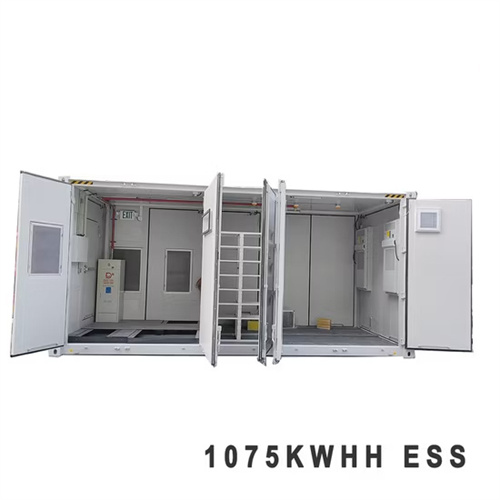Electric energy storage heating project loan
As the photovoltaic (PV) industry continues to evolve, advancements in Electric energy storage heating project loan have become critical to optimizing the utilization of renewable energy sources. From innovative battery technologies to intelligent energy management systems, these solutions are transforming the way we store and distribute solar-generated electricity.
6 FAQs about [Electric energy storage heating project loan]
Why do energy storage projects need project financing?
The rapid growth in the energy storage market is similarly driving demand for project financing. The general principles of project finance that apply to the financing of solar and wind projects also apply to energy storage projects.
Do project finance lenders consider technology risks in energy storage projects?
Project finance lenders view all of these newer technologies as having increased risk due to a lack of historical data. As a result, a primary focus for lenders in their due diligence of an energy storage project will be on technology risks.
Can you finance a solar energy storage project?
Since the majority of solar projects currently under construction include a storage system, lenders in the project finance markets are willing to finance the construction and cashflows of an energy storage project. However, there are certain additional considerations in structuring a project finance transaction for an energy storage project.
Why is energy storage important?
Energy storage is essential to enabling utilities and grid operators to effectively adopt and utilize the nation’s growing portfolio of clean energy resources, like solar and wind, on demand. However, today’s energy storage technologies are not sufficiently scaled or affordable to support the broad use of renewable energy on the grid.
Why do we need reliable energy storage systems?
“As we build our clean energy future, reliable energy storage systems will play a key role in protecting communities by providing dependable sources of electricity when and where it’s needed most, particularly in the aftermath of extreme weather events or natural disasters,” said U.S Secretary of Energy Jennifer M. Granholm.
What technology risks are associated with energy storage systems?
Technology Risks Lithium-ion batteries remain the most widespread technology used in energy storage systems, but energy storage systems also use hydrogen, compressed air, and other battery technologies. Project finance lenders view all of these newer technologies as having increased risk due to a lack of historical data.

